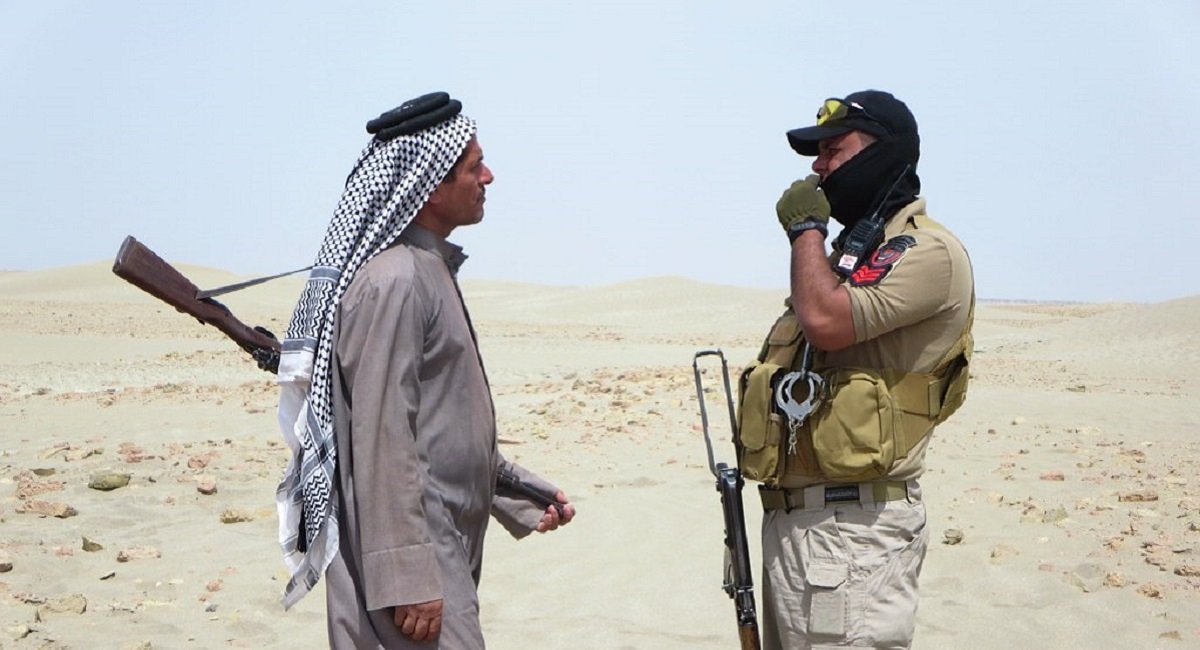

Only a structural approach to reform can hold to account the fluid and adaptive networks of power that undermine the Iraqi state, networks that include the Popular Mobilization Forces and all other major political parties in Iraq.
As the self-proclaimed Islamic State rose to take almost one-third of Iraq’s territory from a crumpling Iraqi military in 2014, former prime minister Nouri al-Maliki responded by bringing together preexisting paramilitary groups to form the Popular Mobilization Forces (PMF). This new institution, which sat under the prime minister’s office, grew to become a government-recognized security force with more than 150,000 personnel and an annual allocation of $2.6 billion from the national budget.
Yet, as "Networks of Power" points out, the PMF grew to become much more than a security organization. Its groups ran in parliamentary elections, appointed members to senior government positions, operated public and private economic enterprises, and in many ways acted like a state. However, the PMF never formed into a coherent organization with a clear command structure that sat completely inside or completely outside the formal government. Instead, it remained a series of networks.
These networks expanded and transformed, with groups splintering and others coalescing, but remained fluid and adaptive. Critically, the PMF is not an anomaly. Its strategies and activities are part and parcel of Iraqi politics, practiced by all major parties connected to the Iraqi state. These networks of power complicate governance and require a comprehensive, structural approach to reform.
Networks of PMF Power
Understanding the structure of each network offers insights into its strategies, capabilities, and relationship to the state. Some networks are parochial, with strong ties to a social base embedded in Iraqi society, but with weak leadership coherence. The Sadrist Saraya al-Salam is an example of this category. Its leadership is fragmented but has a strong social base that was mobilized to win the 2018 national elections. Other networks are vanguard, with strong leadership coherence but weak ties to a social base in Iraq. Kataeb Hezbollah is an example of such a network. Its vanguard structure means that its core leadership can create different groups to pursue its objectives, evident in the establishment of several resistance factions following the U.S. assassination of Abu Mehdi al-Muhandis, who was the de facto PMF leader. Many of its fighters do not know the leaders, and are often moved from one group to another.
In his pursuit of power, Abu Mehdi al-Muhandis wanted to transform these series of varying networks into a coherent organization under the PMF Commission (Hayʾat al-Hashd al-Shaabi). However, he struggled as each network held its own political, economic, and security interests.
These networks also have a symbiotic relationship with Iraq’s security services, political parties, and economy. They include not only fighters, but also politicians and civil servants in local and central government institutions, businesspeople, humanitarian organizations, and civilians. As such, the PMF is deeply embedded across sectors and has formed relationships—sometimes adversarial but more often cooperative—with other actors, all of whom make up the incoherent Iraqi state. PMF-connected leaders remain major brokers within the Iraqi state network.
Iraq’s Incoherent State
This connectivity reveals not only the nature of the PMF but also the nature of the Iraqi state, which cannot be understood through a framework that conflates formal government institutions with state power. PMF networks enjoy state power, which they gain from their connectivity in formal and informal spaces. In short, the state in Iraq is best understood as a network of power.
This reality has implications for policymakers seeking reform. The United States, for example, has pursued various tools, none of which have led to reform. Military strikes and economic sanctions have not led to fundamental changes or removed the structures that produce unaccountable armed actors. Alternative institutions—such as the Counter-Terrorism Service (CTS) or even PMF groups linked to Grand Ayatollah Ali Sistani have not taken power away from the networks. Instead, institutions such as the CTS have become islands isolated from social power and unreliable as partners in pursuing reform. Dividing and fragmenting PMF networks by playing one actor off of the other has also not worked, as so many power brokers in the network are “double-hatted” in their positions, affiliations, and loyalties.
Structural Approach to Reform
Instead, policy options towards the PMF should rely on a more coherent strategy of reform that understands the nature of its networks and its connectivity to the Iraqi state. Reform should not ignore or solely focus on the PMF, but should focus on all other actors connected in political, economic, and security spaces. In the longer term, the key is to develop mechanisms that can hold to account all actors and move towards a more coherent Iraqi state. As a start, however, policymakers should work with an understanding of the connective nature of the networks so that any reform can then embody both security and political considerations.
Renad Mansour is senior research fellow and project director of the Iraq Initiative at Chatham House and senior research fellow at the American University of Iraq, Sulaimani. He is co-author of Once Upon a Time in Iraq, published by BBC Books/Penguin to accompany the critically acclaimed BBC series.



